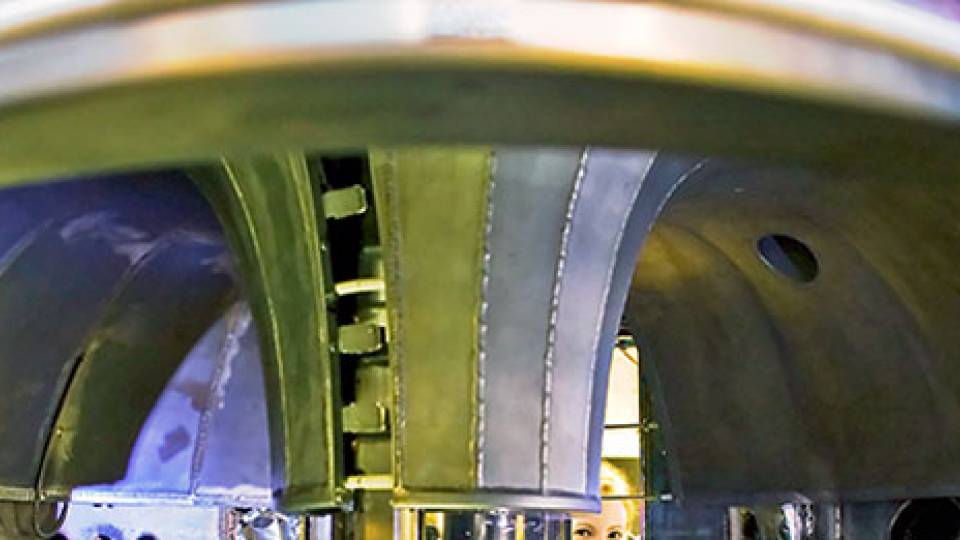The U.S. Department of Energy's Princeton Plasma Physics Laboratory will receive a two-year federal grant of $13.8 million as part of the American Recovery and Reinvestment Act (ARRA).
The grant, which was announced Tuesday, Aug. 4, by DOE, includes $8.8 million for a variety of initiatives in fusion energy research and $5 million for infrastructure improvements at the laboratory. PPPL is one of 10 DOE national laboratories in six states receiving funding at this time through ARRA, the economic stimulus bill signed by President Barack Obama earlier this year. The stimulus funding will be in addition to PPPL's regular budget allocations for fiscal years 2009 through 2011.
"We are pleased that stimulus funding is being made available for Princeton's fusion energy research program," said PPPL Director Stewart Prager. "The additional research capabilities enabled by this funding will accelerate the advancement of understanding in plasma science, fusion science and fusion technology, which form the knowledge base needed for an economically and environmentally attractive fusion energy source."
PPPL, which is funded by DOE's Office of Science and managed by Princeton University, is a collaborative national center for science research and innovation leading to an attractive fusion energy source.
Fusion is the process that powers the sun and the stars. In the interior of stars, matter is converted into energy by the fusion, or joining, of the nuclei of light atoms to form heavier elements. At PPPL, physicists use a magnetic field to confine plasma -- a hot ionized gas that is the fuel for fusion energy production. Scientists hope eventually to use fusion energy for the generation of electricity, and as an alternative to current energy sources that are harmful to the environment.
PPPL plans to use the ARRA funding to upgrade and expand the use of the laboratory's primary fusion device, the National Spherical Torus Experiment (NSTX). Several of the diagnostic devices, which are employed on the experiment to measure the behavior of plasma, will be upgraded, and NSTX research operations will be increased by a total of five weeks during the next two years -- closer to the device's full utilization level.
The funding also will allow the hiring of additional postgraduate staff to support these enhanced research capabilities. The upgrades and greater run time are expected to significantly enhance the NSTX's scientific output, accelerating its contribution to the fundamental understanding of fusion plasmas and providing urgently needed results for next-step fusion experiments, including ITER -- a large international fusion energy experiment under construction at Cadarche, France.
A portion of the funds will be dedicated to the modernization of the laboratory's electrical distribution system to improve reliability and availability for PPPL's experimental systems.
As a long-term source of alternative energy, fusion has many distinct advantages including: worldwide availability of inexhaustible low-cost fuel; no contribution to global warming or acid rain; and no possibility of a runaway reaction or meltdown. The materials and byproducts of fusion are not suitable for weapons production.
The PPPL grant was included in more than $327 million of new ARRA funding announced by DOE Aug. 4 to support scientific research, instrumentation and laboratory infrastructure projects.
"The projects provide vital funding and new tools for research aimed at strengthening America's energy security and tackling some of science's toughest challenges," DOE Secretary Steven Chu said in the department's announcement.
In March, Chu announced $1.2 billion of stimulus funding for DOE Office of Science projects. On July 17, DOE announced a new Office of Science Early Career Research Program to be funded with $85 million in Recovery Act funds. With this third and final round of funding, projects covering the full $1.6 billion that the DOE Office of Science received from Congress under the Recovery Act have now been approved.

